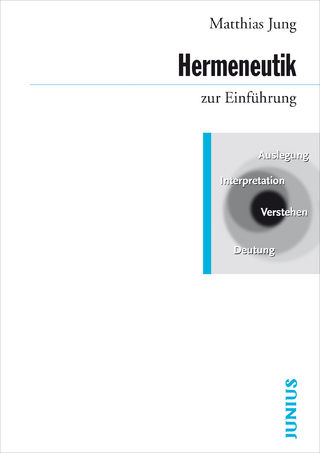
Vices of the Mind
From the Intellectual to the Political
Seiten
2019
Oxford University Press (Verlag)
978-0-19-882690-3 (ISBN)
Oxford University Press (Verlag)
978-0-19-882690-3 (ISBN)
Quassim Cassam introduces the idea of epistemic vices, character traits that get in the way of knowledge, such as closed-mindedness, intellectual arrogance, wishful thinking, and prejudice. Using examples from politics to illustrate the vices at work, he considers whether we are responsible for such failings, and what we can do about them.
Epistemic vices are character traits, attitudes or thinking styles that prevent us from gaining, keeping or sharing knowledge. In this book, Quassim Cassam gives an account of the nature and importance of these vices, which include closed-mindedness, intellectual arrogance, wishful thinking, and prejudice. In providing the first extensive coverage of vice epistemology, an exciting new area of philosophical research, Vices of the Mind uses real examples drawn primarily from the world of politics to develop a compelling theory of epistemic vice. Cassam defends the view that as well as getting in the way of knowledge these vices are blameworthy or reprehensible. Key events such as the 2003 Iraq War and the 2016 Brexit vote, and notable figures including Donald Trump are analysed in detail to illustrate what epistemic vice looks like in the modern world. The traits covered in this landmark work include a hitherto unrecognised epistemic vice called 'epistemic insouciance'. Cassam examines both the extent to which we are responsible for our failings and the factors that make it difficult to know our own vices. If we are able to overcome self-ignorance and recognise our epistemic vices then is there is anything we can do about them? Vices of the Mind picks up on this concern in its conclusion by detailing possible self-improvement strategies and closing with a discussion of what makes some epistemic vices resistant to change.
Epistemic vices are character traits, attitudes or thinking styles that prevent us from gaining, keeping or sharing knowledge. In this book, Quassim Cassam gives an account of the nature and importance of these vices, which include closed-mindedness, intellectual arrogance, wishful thinking, and prejudice. In providing the first extensive coverage of vice epistemology, an exciting new area of philosophical research, Vices of the Mind uses real examples drawn primarily from the world of politics to develop a compelling theory of epistemic vice. Cassam defends the view that as well as getting in the way of knowledge these vices are blameworthy or reprehensible. Key events such as the 2003 Iraq War and the 2016 Brexit vote, and notable figures including Donald Trump are analysed in detail to illustrate what epistemic vice looks like in the modern world. The traits covered in this landmark work include a hitherto unrecognised epistemic vice called 'epistemic insouciance'. Cassam examines both the extent to which we are responsible for our failings and the factors that make it difficult to know our own vices. If we are able to overcome self-ignorance and recognise our epistemic vices then is there is anything we can do about them? Vices of the Mind picks up on this concern in its conclusion by detailing possible self-improvement strategies and closing with a discussion of what makes some epistemic vices resistant to change.
Quassim Cassam is Professor of Philosophy at the University of Warwick. He was previously Knightbridge Professor of Philosophy at Cambridge, and has also taught at Oxford and UCL. He is the author of Self and World (OUP 1997), The Possibility of Knowledge (OUP 2007), Berkeley's Puzzle: What Does Experience Teach Us? (OUP 2014) with John Campbell, and Self-Knowledge for Humans (OUP 2014).
1: The Anatomy of Vice
2: A Question of Character
3: Vicious Thinking
4: Epistemic Postures
5: Vice and Knowledge
6: Vice and Responsibility
7: Stealthy Vices
8: Self-Improvement
| Erscheinungsdatum | 15.01.2019 |
|---|---|
| Verlagsort | Oxford |
| Sprache | englisch |
| Maße | 149 x 224 mm |
| Gewicht | 407 g |
| Themenwelt | Geisteswissenschaften ► Philosophie ► Allgemeines / Lexika |
| Geisteswissenschaften ► Philosophie ► Erkenntnistheorie / Wissenschaftstheorie | |
| ISBN-10 | 0-19-882690-7 / 0198826907 |
| ISBN-13 | 978-0-19-882690-3 / 9780198826903 |
| Zustand | Neuware |
| Informationen gemäß Produktsicherheitsverordnung (GPSR) | |
| Haben Sie eine Frage zum Produkt? |
Mehr entdecken
aus dem Bereich
aus dem Bereich
die letzten Jahre der Philosophie und der Beginn einer neuen …
Buch | Hardcover (2024)
Klett-Cotta (Verlag)
CHF 39,20
Konfuzianismus, Daoismus, Buddhismus
Buch | Softcover (2023)
C.H.Beck (Verlag)
CHF 25,20


